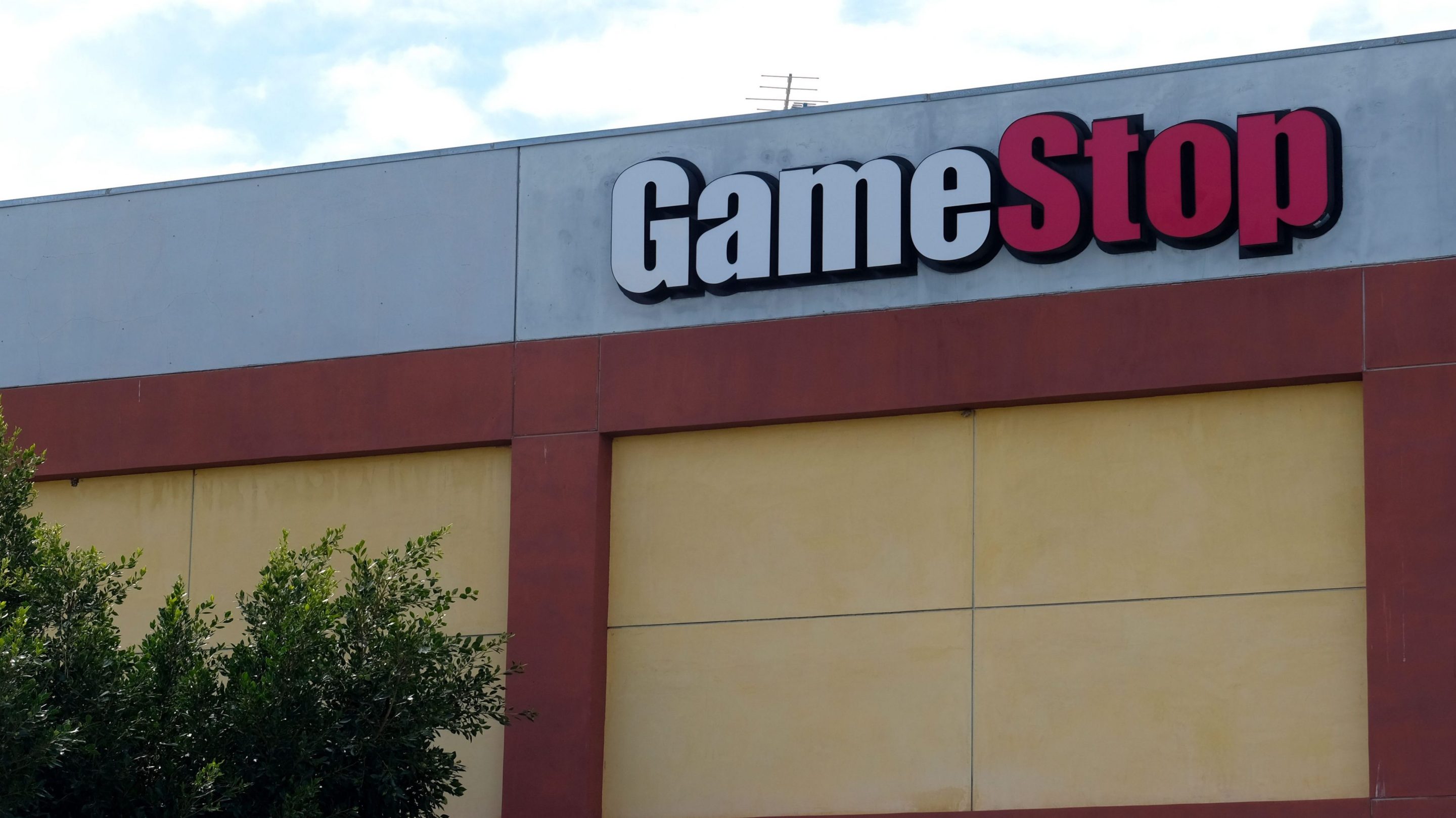I have a house. It's a weathered log cabin with a badly aging deck, located nowhere in particular but comfortably within range of a good grocery store, awkwardly situated over the shoulder of an exceedingly normal vinyl-sided suburban subdivision that appeared next door not long after my family and I moved in. If that instant neighborhood were a family vacation photo, my house would be the grizzled local weirdo eating beans out of a can in the background. That's not really the point, here. I just like to make fun of my house wherever I can.
A thing you have to try to get used to, if you are fortunate enough to have a house, is the idea of "home equity." Your house has a "fair market value," which is how much you could expect to get if you decided to sell your house. Subtract from that amount however much you still owe on your mortgage loan and the difference is your home equity, sometimes also called the house's "real property value." As you pay down your mortgage balance, your home equity grows. As the fair market value of your home increases, your home equity grows. In short, your home equity is how much of the house's sale price you'd get to pocket (give or take, like, closing costs or realtor fees or whatever) if you sold it.
Finance Knowers talk about home equity as a form of wealth that a person can have. A house is a good "asset" to have, then, because over time the fair market value of your house might go up, thereby making you wealthier; this is on top of the home equity you gain by making your mortgage loan payments, plus the additional value of you having a place to live. Homeowners freak out when anything happens that might make the fair market value of their house go down, because then their home equity might go down also, leaving them with less wealth. Once a month, the real estate website Zillow sends me an update on how my house is doing; sometimes it estimates that the fair market value of my house has gone up, and that is a strange kind of thrill, like a beam of green light passing through a puff of smoke.
Home equity wealth is not "liquid." That means it's not easy to spend. You can spend it by getting a "home equity loan," where a financial institution agrees to pay you some money in exchange for you agreeing to pay them more money than that, over time; in that and virtually every other relevant respect it is not different from any other kind of loan, except that everybody agrees that it involves your home equity in a way that makes it go down on a screen somewhere. You have traded it for money, is the idea. What the creditor got in return was not a chunk of your house, though, or the privilege of living inside it, but just an agreement that you will pay the creditor more money than the creditor paid you. The other way you can spend your home equity wealth is by selling your house. The first thing you will have to buy, in that case, will be a new place to live.
Talking and writing about this stuff has the effect of making me feel slightly drunk, or feverish. It makes me want to climb onto the roof and scream some things that are real and true. I do not want to spend my house! I would prefer to live in it. Zillow's estimation of the fair market value of my house could go all the way down to zero and I guess that would be curtains for my home equity, but it would not change my relationship to my home, which is that it is where I live with my family. The "real property value" of my house, to me and my family, is one Home Unit. It is very important to us.
All the rest of that stuff is made up. It concerns a real thing—a real house, a physical place, a more-or-less orderly pile of wood and plaster and (in my house's case) carpenter bee nests—but is otherwise entirely conjecture and imagination. I have one Home Unit, and a monthly payment that I will be making for pretty much the rest of my life in exchange for continuing to live there. That all the rest of that stuff is imaginary in ways that I could, in theory, manipulate to my advantage and/or enrichment—or that I could screw up to my ruin—is, like everything else except for the house and the family that lives in it and the terms we must meet in order to continue living in it, only as real as anybody agrees to pretend it is.
This has been on my mind a lot the past few days, as the world of finance or investment or whatever, and all of the media, and also every visible part of the internet have been consumed by the drama around stock ownership and stock manipulation centering around the GameStop video-game retailer company. Possibly you have heard about it.
A war remains underway between those who are in a "short" position on GameStop (that is, those who have made risky, leveraged bets that the value of GameStop stock will go down) and those who are "long" on it (those whose investments will make money if the value of the stock goes up). The latter group, spurred on by a confederation of Reddit users, and facilitated by the ease and relative cheapness of purchasing "call options" (the option to buy a stock at a certain later date, for a certain set price) on platforms such as Robinhood, have caused the price of the stock to skyrocket over recent weeks. This has exposed the former, some of whom are powerful hedge funds and institutional investors, to the possibility of absorbing vast losses when they're eventually forced to "close" their positions, or complete the buying and selling transactions that constitute their shorting of the stock. The pressure on the "short" group has forced some of them to buy GameStop stock at hugely inflated prices, driving the price higher still. It's a feedback loop, making the stock all the more attractive to speculators and putting the remaining shorters in an ever more precarious position. Writing this paragraph filled me with icy dread.
You can imagine, if you like it better than the sound of feedback, a runaway criticality event in a nuclear reactor. The reaction's outputs fuel the reaction, which produces more of those outputs, which in turn further intensify the reaction, which produces more of the outputs, and so on. Except, instead of a nuclear reactor exploding or melting down and spewing toxic radiation across miles of the physical world, a number goes up on a screen, and keeps going up. Last summer GameStop's stock was trading at around $4 per share; as of this writing, it is trading at $274 per share. Some of the larger short-sellers—spooky investment godheads with names like Melvin Capital Management—stand to lose billions, if not tens of billions, if not even more than that, if they are forced to close their transactions at this price.
For many of the small investors who've been buying GameStop stock, thereby driving its price higher, part of the point of all of this has been to destroy or at any rate harm the hedge fund sharks at the top of the investment food chain, the ones who made big bets against GameStop's future. For that reason, many of them have been encouraging each other to hold onto their shares instead of cashing out, even though in many cases they could sell their shares for exponentially more than they paid to purchase them, and thereby realize huge profits. If they refuse to sell, then there will be no available shares of stock for the short-sellers to buy—no way for them to pay their way out of the doom that will arrive if the stock price, unburdened by the downward pressure of sales, continues rising right up through whenever those shorts come due.
Certainly some of the remaining "long" investors just believe in the prospects of GameStop, the video-game retailer from the mall, and see it as a good investment. Some of them believe in the prospects of GameStop in a slightly more abstracted sense, and mostly want to ward off the warping effects of the company's stock being hugely shorted by lots of very rich and influential investment bodies. Some of them do not particularly give a rip about GameStop, but just want to see powerful hedge funds broken on a wheel of their own making. Some of them are just hoping to pass quickly and profitably through a speculative bubble before it bursts. Some number of them are call-option sellers (market-makers, is the term) covering their asses. Personally, I kind of like to imagine some Marxist troublemakers in there too, doing their part to heighten the contradictions, prodding the financial system to reveal its rigging and corruption. But it is likelier, here as always, to assume that everyone involved is in it for the money.
Do you find any of this bewildering and/or repugnant? Do you find yourself wanting to ask, even after all of that, "OK, yes, but what is this? Like ... what is it." I hope so! I'll know we are in at least one way sort of like each other if you find even the idea of knowing about this somehow offensive, like when people expect you to care about the comings and goings of the British royal family.
Writers seem to want to tell this as a story about a brand of nihilism characteristic of our collapsing hyper-online 21st century society, or about "meme stocks," or to frame it as some kind of up-with-people market revolution (as if people with disposable income using it to buy their way into the ownership class and get paid in essence for having money represents even a mild reordering of any part of this country's systems), or to wring their hands over the dangers finance and investment face without the controlling constraints of the world before high-speed internet, the old, vanished world in which $8 transaction fees and the clunkiness of phone and/or fax communication might have done—well, what, exactly? Might have prevented this? First someone will have to make a case that something bad has happened here. Or even that anything has happened at all.
An investment is not a complicated thing in and of itself: Someone gives a company some money that it can spend to operate or grow its business, and in return they get a legal entitlement to a certain portion of the money that company makes, without having to do any actual labor for that company. That portion is a share. The person or entity who purchased it is an investor. Or like a shareholder or stockholder or whatever. (Anyway, a capitalist!) All this happens at a layer of remove from the actual world, where actual people do labor and are compensated for it, but that's capitalism for you. But it does at least touch that world. Money itself is an abstraction, or an analogy; an investment, like most other ways of spending money, is a means of transforming it back into something real. You invest a share's worth of money in Mary's Plastic Fork Company, and Mary hires a new Fork Molding Technician, and now Mary's Plastic Fork Company makes slightly more plastic forks per hour than it did before. The whole of this is legible and easy to understand.
A further layer of remove out from that is the stock trade. Maybe somebody values that share more highly than you. You sell it to them for more than you paid for it, and pocket the difference. Now the company is on the hook to that person, instead of you, even though that person paid no money to the company. What that person bought from you was, by that point, a concept. It was nothing, really, or nothing more than an agreement to say that something had happened.
Where does a short touch reality? What part of the real world does, say, a call option represent? Is it even an analogy of any real thing? To what actual real, physical thing does any of this correspond? All of these are just mutual agreements—in many cases, agreements made between inhuman legal fictions—to pretend that a series of entirely unreal things have happened in a certain order, at specific times, at the end of which one number in a database associated with one entity becomes greater, and another number associated with another entity gets lesser. Slightly closer to reality than that, the entity whose number shrank decides it must make some changes in order to balance out the shrinking; it moves some other numbers around to do this. Closer to reality than that, but also far enough from the short or the call option or the hedge fund that it might as well take place in an alternate dimension, a human person loses their job so that a company can balance its books. That's the only part of it that actually happened. All the rest was just an agreement to pretend. All of what made somebody perceive the necessity of it was made up.
As a writer I'm tempted to analogize this as, like, the butterfly effect, or as the flash of some distant supernova reaching Earth a billion years later, where someone takes it as a sign they should sow beans instead of corn. I'm tempted to analogize it, in other words, because analogy is the lasso you throw around some new strange thing when you need to pull it closer and make sense of it. But a butterfly flapping its wings on the far side of the world is still a real thing that happened; you just couldn't see it. A supernova is still a real thing that happened, and whatever idea it later gave somebody, or whatever meaning somebody superimposed onto the sight of it, is pegged to the reality of it.
That's not this. These pure financial abstractions, these imaginary entities and instruments that exist for absolutely no other purpose than to transform money into more money, can't help but be misrepresented by any attempt to transfer the meaning of some real thing onto them. It's just something somebody made up out of nothing. At their closest pass to the real world, where living beings do work and feed their families and trade their labors for the necessities of life, the stock market might be most like the horrible folie à deux stories of sick people who lose themselves in a story of their own invention and decide they have to murder somebody to appease the Slender Man. Or the guy who decided he had to shoot up a pizza parlor to disrupt the Satanic cannibal pedophile cult holding meetings in its basement. The actions and the impacts are real, but they spring from nothing that could properly be called something. They feel real, and carry the weight of reality, because everyone in this society is told at every turn that they are real, that they're the governing substrate of your life and the most meaningful indices of the state of the real physical world you can see with your eyes and touch with your skin. The numbers that go up and down do not just reflect a reality, in this understanding, but embody a higher and somehow more real form of it. You start with them, and then pull the rest of observable reality into a straight line behind it.
Is that true? Or real? As I write this, a day and a half after I started writing it (get off my case!), GameStop's stock is trading at $337 a share, an increase of 8,425 percent over where it was trading back in July, an astounding explosion of value and wealth. Every media outlet I can think of has covered this, explained it, warned against its portents or hailed its significance. What convinced some investors to believe in GameStop's potential in the first place, back at the beginning of this imaginary war between longs and shorts, was that it had a new plan to close a bunch of its physical stores and move more of its business online. Its costs would be lower as a result; it would become leaner; it would be better positioned to weather the changing retail environment. GameStop would be a better investment. All of these are ways of saying that real people were not going to get paychecks anymore, in the middle of a pandemic.






